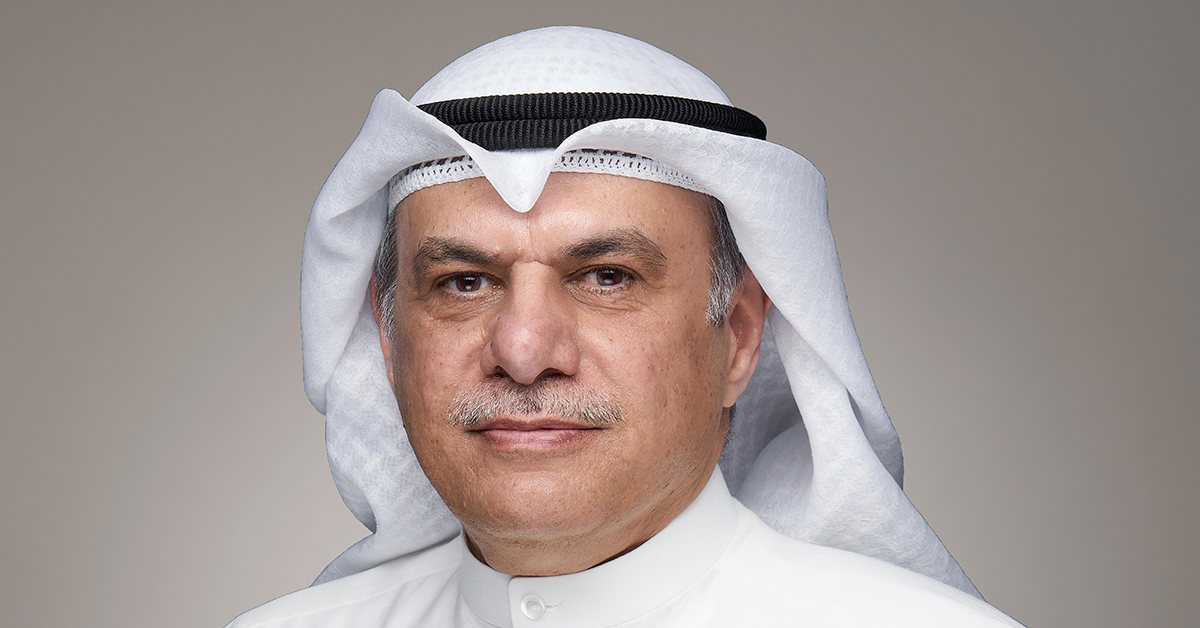Adel Al-Majed, Group CEO of Boubyan Bank, honored for his Outstanding Contribution to Islamic Finance, speaks to Global Finance about Islamic finance and new digital developments.

Global Finance: Boubyan recently launched Nomo, one of the world’s first Islamic digital-only banks, from the UK. Why is this happening now?
Adel Al-Majed: Well, we are one of the leaders in Islamic finance, and when it comes to being a digital attacker, we have the capabilities. But we didn’t believe it could be done from Kuwait or the GCC or even the MENA region. I don’t think it would have been successful, simply because we’d have been going against big regional banks that have good service, so you wouldn’t have a real competitive advantage. We looked at it and said, “How can we do it?” What we came up with was reversing the attack. Attacking not from inside the country but from outside. We looked at what was the most painful exercise for our customers and turned out it was opening an account in the UK or in Europe. We decided to establish a digital bank out of London, catering for GCC customers who want to bank digitally. This is where I think we can have a competitive edge within the GCC.
GF: Let’s talk a bit about your career. When you started off at NBK, Islamic finance was a niche market. What made you believe that it had potential for growth?
Al-Majed: During my career, I worked in different parts of the banking system. During the 15 years before I moved to Boubyan Bank, I was heading Consumer Banking at National Bank of Kuwait. I saw people leaving the bank, and although we said we had the best service, people were leaving. During exit interviews with these customers, they said they were moving because of Islamic banking. So the more I started digging into it, the more I started believing that although it is a niche business, if we didn’t get into it we’d lose market share in the long term.
GF: And when you took over Boubyan Bank, you immediately changed the style of leadership. You didn’t want to have a private elevator for example. In your opinion, what makes a good leader?
Al-Majed: When I entered the bank, the first thing I noticed was a thumbprint machine for attendance. I said, “No, no, this stops today. I’ll judge people on their performance, not whether they came late or not.” The second thing was the elevator. When I arrived, they told me this one is for the CEO, so again I said, “No, I’m going to go with the staff.” These were shocking moves that changed the culture of the bank.
For leadership, you must know your areas of strength and your areas of weakness, and where you are weaker, you must bring someone else to act. Don’t try to do it all, because people are intelligent. They will see it. Personally, I would say my weakness is that I am too kind. I’ve never shouted at staff. I’m a kind guy who uses the carrot rather than the stick in terms of management. In my team, you find the guys who are more on the command-and-control side. I transformed my role into something more visionary, and the day-to-day management is in the hands of my teams, where I chose people who are strong, loyal and honest. Another thing I really like is to meet people, so every week I choose 10 staff members randomly to come at 7:30 a.m. to have coffee with the CEO. We sit and talk; the effects are tremendous.
GF: Another thing you did was taking an early bet on youth and new technologies. How did that come about?
Al-Majed: When I took over at Boubyan Bank, we brought consultants in to see what we would do with this Islamic bank. Our main competitors were after mass consumers, so we chose to go after the affluent, highly paid customers. This was the strategy.
Then a colleague from IT came to one of my morning meetings and said, “I have an idea.” He said, “We withdraw money from the ATM without a card, using an app and a four-digit code.” We did it. I then said, “What’s the second idea?” It was something to withdraw money with a national ID. At the time, the Kuwaiti market for digital banking exploded and suddenly the market’s perception of Boubyan Bank was that of a high-tech market leader. That brought us a lot of young clients.
The strategy we started with changed completely, and it happened organically. We became a bank of choice for the youth and technology and decided to double down there. The affluent clients we initially thought about came, but they came for the tech we were offering.
GF: What would you like to say to a young banker who is just starting a career in the MENA region?
Al-Majed: Banking is changing. The jobs I did when I started my career 40 years ago are going to disappear. It’s all going to be internet related. You still need hard work, of course, and it’s going to be difficult. But if someone really wants to get into banking they should focus on the Internet of Things, because that’s where that the future is going.



